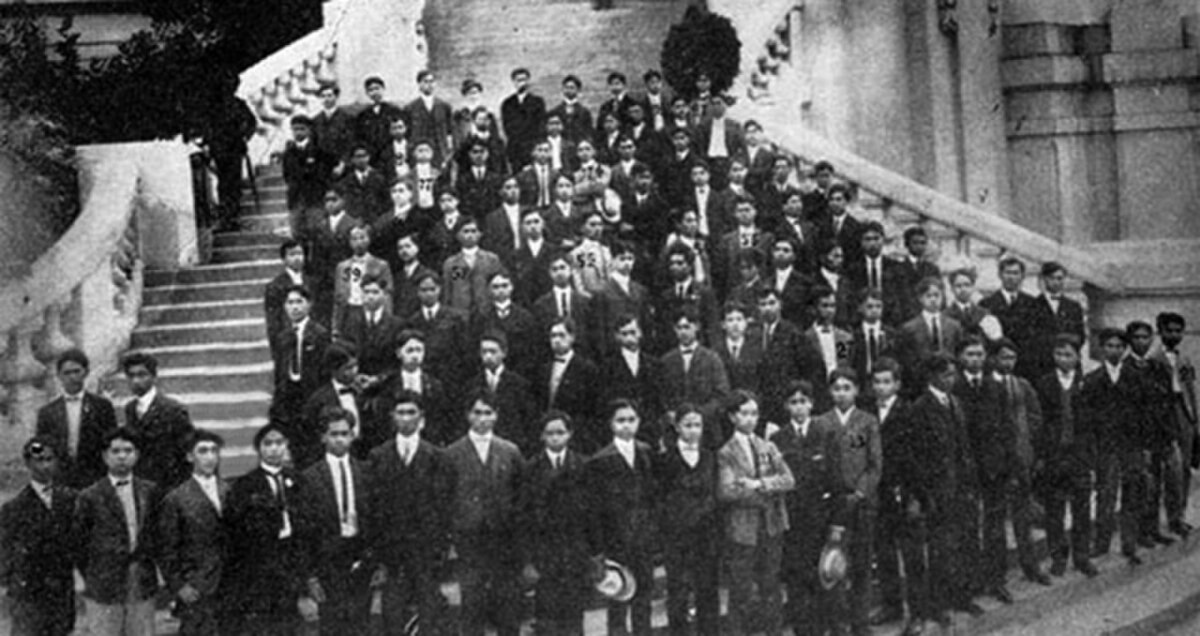
Pensionado Act
United StatesThe Pensionado Act is Act Number 854 of the Philippine Commission, which passed on 26 August 1903. Passed by the United States Congress, it established a scholarship program for Filipinos to attend school in the United States. The program has roots in pacification efforts following the Philippine–American War. It hoped to prepare the Philippines for self-governance and present a positive image of Filipinos to the rest of the United States. Students of this scholarship program were known as pensionados.
From the initial 100 students, the program provided education in the United States to around 500 students. They would go on to be influential members of the Philippine society, with many of the alumni of the program going on to work for the government in the Philippine Islands. Due to their success, other immigrants from the Philippines followed to be educated in the United States, in excess of 14,000. Many of these non-pensioned students ended up permanently residing in the United States. In 1943, the program ended. It was the largest American scholarship program until the Fulbright Program was established in 1948.
During World War II, Japan initiated a similar program during its occupation of the Philippines, named nampo tokubetsu ryugakusei. Following the War, and Philippine independence, Filipino students continued to come to the United States utilizing government scholarships.
